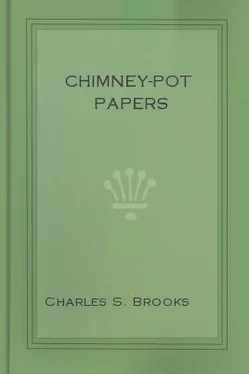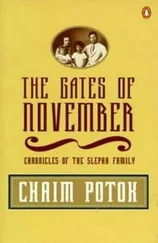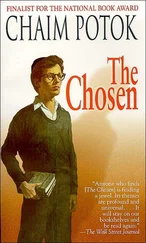Charles Brooks - Chimney-Pot Papers
Здесь есть возможность читать онлайн «Charles Brooks - Chimney-Pot Papers» весь текст электронной книги совершенно бесплатно (целиком полную версию без сокращений). В некоторых случаях можно слушать аудио, скачать через торрент в формате fb2 и присутствует краткое содержание. Город: London, Год выпуска: 1920, Издательство: New Haven: Yale University Press, Жанр: Юмористическая проза, на английском языке. Описание произведения, (предисловие) а так же отзывы посетителей доступны на портале библиотеки ЛибКат.
- Название:Chimney-Pot Papers
- Автор:
- Издательство:New Haven: Yale University Press
- Жанр:
- Год:1920
- Город:London
- ISBN:нет данных
- Рейтинг книги:4 / 5. Голосов: 1
-
Избранное:Добавить в избранное
- Отзывы:
-
Ваша оценка:
- 80
- 1
- 2
- 3
- 4
- 5
Chimney-Pot Papers: краткое содержание, описание и аннотация
Предлагаем к чтению аннотацию, описание, краткое содержание или предисловие (зависит от того, что написал сам автор книги «Chimney-Pot Papers»). Если вы не нашли необходимую информацию о книге — напишите в комментариях, мы постараемся отыскать её.
Chimney-Pot Papers — читать онлайн бесплатно полную книгу (весь текст) целиком
Ниже представлен текст книги, разбитый по страницам. Система сохранения места последней прочитанной страницы, позволяет с удобством читать онлайн бесплатно книгу «Chimney-Pot Papers», без необходимости каждый раз заново искать на чём Вы остановились. Поставьте закладку, и сможете в любой момент перейти на страницу, на которой закончили чтение.
Интервал:
Закладка:
All afternoon I walked with the sound of wind and water in my ears, and at night, when I had gained my journey's end and lay in bed, I heard beneath my window in the garden the music of a little runnel that was like a faint and pleasant echo of my hillside walk. I fell asleep to its soothing sound and its trickle made a pattern across my dreams.
But perhaps you yourself, my dear sir, are addicted to these country walks, either for an afternoon or for a week's duration with a rucksack strapped across your back. If denied the longer outing, I hope that at least it is your custom to go forth upon a holiday to look upon the larger earth. Where the road most winds and dips and the distance is of the finer purple, let that direction be your choice! Seek out the region of the hills! Outposts and valleys here, with smoke of suppers rising. Trains are so small that a child might draw them with a string. Far-off hills are tumbled and in confusion, as if a giant were roused and had flung his rumpled cloak upon the plain.
Or if a road and a stream seem close companions, tag along with them! Like three cronies you may work the countryside together! There are old mills with dams and mossy water wheels, and rumbling covered bridges.
But chiefly I beg that you wander out at random without too precise knowledge of where you go or where you shall get your supper. If you are of a cautious nature, as springs from a delicate stomach or too sheltered life, you may stuff a bar of chocolate in your pocket. Or an apple—if you shift your other ballast—will not sag you beyond locomotion. I have known persons who prize a tomato as offering both food and drink, yet it is too likely to be damaged and squirt inside the pocket if you rub against a tree. Instead, the cucumber is to be commended for its coolness, and a pickle is a sour refreshment that should be nibbled in turn against the chocolate.
Food oftentimes is to be got upon the way. There is a kind of cocoanut bar, flat and corrugated, that may be had at most crossroads. I no longer consider these a delicacy, but in my memory I see a boy bargaining for them at the counter. They are counted into his dirty palm. He stuffs a whole one in his mouth, from ear to ear. His bicycle leans against the trough outside. He mounts, wabbling from side to side to reach the pedals. Before him lie the mountains of the world.
Nor shall I complain if you hold roughly in your mind, subject to a whim's reversal, an evening destination to check your hunger. But do not bend your circuit back to the noisy city! Let your march end at the inn of a country town! If it is but a station on your journey and you continue on the morrow, let there be an ample porch and a rail to rest your feet! Here you may sit in the comfortable twilight when crammed with food and observe the town's small traffic. Country folk come about, if you are of easy address, and engage you on their crops. The village prophet strokes his wise beard at your request and, squinting at the sky, foretells a storm. Or if the night is cold, a fire is laid inside and a wrinkled board for the conduct of the war debates upon the hearth. But so far as your infirmity permits, go forth at random with a spirit for adventure! If the prospect pleases you as the train slows down for the platform, cast a penny on your knee and abide its fall!
Or if on principle you abhor a choice that is made wickedly on the falling of a coin, let an irrelevant circumstance direct your destination! I once walked outside of London, making my start at Dorking for no other reason except that Sam Weller's mother-in-law had once lived there. You will recall how the elder Mr. Weller in the hour of his affliction discoursed on widows in the taproom of the Marquis of Granby when the funeral was done, and how later, being pestered with the Reverend Mr. Stiggins, he immersed him in the horse-trough to ease his grief. All through the town I looked for red-nosed men who might be descended from the reverend shepherd, and once when I passed a horse-trough of uncommon size i asked the merchant at the corner if it might not be the very place. I was met, however, by such a vacant stare—for the fellow was unlettered—that to rouse him I bought a cucumber from an open crate against the time of lunch, and I followed my pursuit further in the town. The cucumber was of monstrous length and thin. All about the town its end stuck out of my pocket inquisitively, as though it were a fellow traveler down from London to see the sights. But although I inquired for the Weller family, it seems that they were dead and gone. Even the Marquis of Granby had disappeared, with its room behind the bar where Mr. Stiggins drank pineapple rum with water, luke , from the kettle on the hob.
We left Dorking and walked all afternoon through a pleasant sunny country, up hill and down, to the town of Guildford. At four o'clock, to break the journey, we laid out our lunch of bread and cheese and cucumber, and rested for an hour. The place was a grassy bank along a road above a fertile valley where men were pitching hay. Their shouts were carried across the fields with an agreeable softness. Today, doubtless, women work in those fields.
On another occasion we walked from Maidstone to Rochester on pilgrimage to the inn where Alfred Jingle borrowed Mr. Winkle's coat to attend the Assembly, when he made love to the buxom widow. War had just been declared between Britain and Germany, and soldiers guarded the roads above the town. at a tea-room in the outskirts army officers ate at a neighboring table. Later, it is likely, they were in the retreat from Mons: for the expeditionary force crossed the channel within a week. Yet so does farce march along with tragedy that our chief concern in Rochester was the old inn where the ball was held.
A surly woman who sat behind the cashier's wicket fixed me with her eye. "Might we visit the ballroom?" I inquired. Evidently not, unless we were stopping at the house. "Madame," I said, "perhaps you are unaware that the immortal Mr. Pickwick once sojourned beneath your roof." There was no response. "The celebrated Mr. Pickwick, G. C. M. P. C.," I continued, "who was the discoverer of the sources of the Hampstead Ponds." At this—for my manner was impressive—she fumbled through the last few pages of her register and admitted that he might have been once a patron of the house, but that he had now paid his bill and gone.
I was about to question her about the poet Augustus Snodgrass, who had been with Mr. Pickwick on his travels, when a waiter, a humorous fellow with a vision of a sixpence, offered to be our guide. We climbed the stairs and came upon the ballroom. It was a small room. Three quadrilles must have stuffed it to the edge—a dingy place with bare windows on a deserted innyard. At one end was a balcony that would hold not more than three musicians. the candles of its former brightness have long since burned to socket. Vanished are "Sir Thomas Clubber, Lady Clubber and the Miss Clubbers!" Gone is the Honorable Wilmot Snipe and all the notables that once crowded it! Vanished is the punchbowl where the amorous Tracy Tupman drank too many cups of negus on that memorable night. I gave the dirty waiter a sixpence and came away.
I discourage the usual literary pilgrimage. Indeed, if there is a rumor that Milton died in a neighboring town, or a treaty of consequence was signed close by, choose another path! Let neither Oliver Cromwell nor the Magna Carta deflect your course! One of my finest walks was on no better advice than the avoidance of a celebrated shrine. I was led along the swift waters of a river, through several pretty towns, and witnessed the building of a lofty bridge. For lunch I had some memorable griddlecakes. Finally I rode on top of a rattling stage with a gossip for a driver, whose long finger pointed out the sights upon the road.
Читать дальшеИнтервал:
Закладка:
Похожие книги на «Chimney-Pot Papers»
Представляем Вашему вниманию похожие книги на «Chimney-Pot Papers» списком для выбора. Мы отобрали схожую по названию и смыслу литературу в надежде предоставить читателям больше вариантов отыскать новые, интересные, ещё непрочитанные произведения.
Обсуждение, отзывы о книге «Chimney-Pot Papers» и просто собственные мнения читателей. Оставьте ваши комментарии, напишите, что Вы думаете о произведении, его смысле или главных героях. Укажите что конкретно понравилось, а что нет, и почему Вы так считаете.











